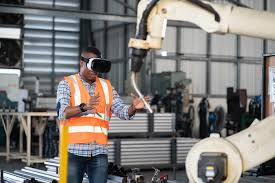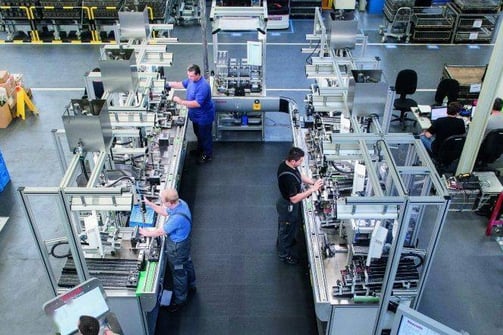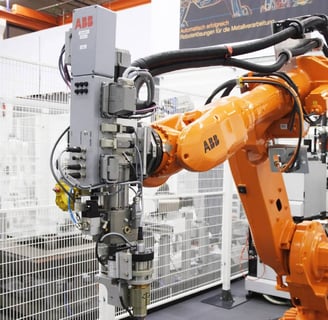Survey Results
Explore insights on intelligent process automation in manufacturing enterprises.


Artificial intelligence (AI), as the core of intelligent process automation, analyzes massive amounts of structured and unstructured data through machine learning and complex algorithms, builds knowledge bases for enterprises and provides accurate predictions. In the semiconductor industry, the global semiconductor IC industry output value is expected to reach US$647.3 billion in 2024, a year-on-year increase of 25.6%. This strong growth is mainly driven by the explosion of demand for AI computing power and the bottoming out of memory prices. Business process management (BPM) realizes the automatic execution of workflows and improves the flexibility and consistency of business processes. Robotic process automation (RPA) uses software robots to undertake background tasks such as data extraction and form filling, and uses AI insight analysis to handle more complex tasks.





Technologies such as low-code development platform (LCDP) and process mining also play an important role in intelligent process automation. Low-code development platform enables enterprises to quickly build and customize automated processes with lower technical barriers, shortening the project implementation cycle. Process mining technology deeply analyzes the existing business process data of enterprises to find bottlenecks and inefficient links in the process, providing data support for optimizing the process. These technologies work together to expand the boundaries of business scenarios, allowing intelligent process automation to better adapt to the complex business needs of different industries and enterprises.
In the catering industry, after the introduction of intelligent cooking solutions, the efficiency of some catering stores has been improved, the labor cost has been reduced by about 20%, the meal delivery time has been greatly shortened, the taste of the dishes has remained highly consistent, and customer satisfaction has been significantly improved. In the railway industry, the intelligent recognition system for the image detection of freight car faults can perform intelligent analysis on freight car images, achieving an automatic recognition rate of more than 90% for freight car faults, reducing the average operation time of trains from 15 minutes to 10 minutes, and increasing the operating efficiency by 2 times. These fully demonstrate the wide applicability and remarkable results of intelligent process automation in different industries.


International manufacturers such as UiPath and Automation Anywhere account for a combined 45% of the intelligent process automation market, and they have taken a leading position in the global market with their advanced technology and rich industry experience. The market share of domestic manufacturers such as Real Intelligence and Cloud Expansion has also increased to 38%. As the demand for intelligent process automation among domestic enterprises continues to grow, domestic manufacturers have gradually emerged in the market through advantages such as localized services and customized solutions. At the same time, with the continuous development of technology, generative AI + RPA solutions have become the standard for leading companies, and the number of related patents has increased by 120% annually, which has also intensified the fierceness of market competition and prompted companies to continuously increase their R&D investment and enhance their technological innovation capabilities.